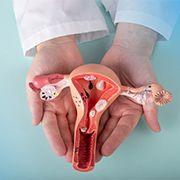Triglycerides: How To Keep Them In Check?
In This Article
Triglycerides: How To Keep Them In Check?
Alaka
Updated on July 16, 2024
Medically verified by Dr. Arya
Fact checked by Sreemoyee

Wellness
10 minutes
Triglycerides are a kind of fat found in your blood that your body uses for energy.
While they are necessary, having too many can cause health issues like heart disease.
It is important to keep your triglycerides at a healthy level. Wondering how to keep them in check? Want to know more about it?
Then you are in the right place. Karepedia is here to help you with needed information.
In this blog, Karepedia will cover what triglycerides are, why they are important, and offer simple tips to help you manage them. Let's work together to maintain a healthy heart!
Understanding Triglycerides
Triglycerides are a kind of fat that your body uses for energy. They are made from three fatty acids and one glycerol molecule. After you eat, your body breaks down fats into these parts and then puts them back together as triglycerides. These are carried through your blood and stored in fat cells for later use.
You can find out your triglyceride levels with a blood test. Here are the general categories:
-
Normal: Less than 150 milligrams per deciliter (mg/dL)
-
Borderline high: 150 to 199 mg/dL
-
High: 200 to 499 mg/dL
-
Very high: 500 mg/dL and above
-
High triglyceride levels can lead to serious health problems, such as:
Heart Disease: High triglycerides can make your arteries harden and thicken, which can cause heart attacks, strokes, and other heart issues.
Pancreatitis: Extremely high levels can inflame your pancreas, which is very dangerous.
Metabolic Syndrome: High triglycerides are often part of a group of conditions that raise the risk of heart disease, stroke, and diabetes.
Understanding triglycerides and keeping them at healthy levels can help you avoid these serious health problems.
What Are The Causes Of High Triglycerides?
Poor diet:
Several factors contribute to elevated triglyceride levels in the bloodstream. One primary cause is a poor diet, particularly one high in sugars and unhealthy fats.
Foods such as sugary snacks and beverages, refined carbohydrates like white bread and pastries, and fried or fatty meats can significantly increase triglyceride levels.
Lack of physical activity:
Another factor is insufficient physical activity. Lack of regular exercise leads to weight gain and reduces the body's ability to burn triglycerides for energy, thereby increasing their accumulation in fat cells.
Alcohol consumption:
Excessive alcohol consumption also plays a role. Alcohol is rich in calories and sugars, which the body converts into triglycerides, leading to higher levels in the blood.
Medical conditions:
Underlying medical conditions such as diabetes and hypothyroidism can also contribute to high triglyceride levels. Poorly managed diabetes affects lipid metabolism, while an underactive thyroid gland slows down metabolic processes, both of which can lead to elevated triglycerides.
Genetics and family history:
Genetics and family history are additional factors. If close relatives have high triglyceride levels, there is a higher likelihood of inheriting this trait, indicating a genetic predisposition.
How To Control Triglycerides And Keep It In A Healthy Level
Dietary changes:
-
Focus on eating whole foods that are not processed. These include fruits, vegetables, whole grains like oats and brown rice, lean meats, and beans. Whole foods give you important nutrients without added sugars or unhealthy fats.
-
Include plenty of colourful fruits and vegetables in your meals. They are packed with fibre, vitamins, and antioxidants that can help lower triglycerides. Whole grains like oats and quinoa are also good choices because they have fibre that's good for your heart.
-
Include healthy fats in your diet, such as avocados, nuts, seeds, and olive oil. These fats can improve your cholesterol levels and lower triglycerides.
-
Avoid sugary foods and drinks, and cut back on white bread, pasta, and pastries. These foods can make your triglyceride levels go up because they raise your blood sugar.
-
Try to drink less alcohol or avoid it completely. Alcohol can raise your triglyceride levels, so if you do drink, try to keep it moderate.
 10mint
10mintSexual Health Matters: How To Maintain Your Sexual Health ?
 10mint
10mintYour Guide to Sexual Health Screening and Preventive Measures
 10 mints
10 mintsSTDs in Women: Comprehensive Guide on Symptoms and Treatments
Get a Callback Now
Exercise and lifestyle changes:
-
Making regular physical activity a part of your routine can have significant benefits for your health.
-
It strengthens your heart and improves circulation, helps you maintain a healthy weight or lose excess weight, lower risk of heart disease, diabetes, and certain cancers, releases endorphins that help reduce stress and improve mood, and promotes better sleep quality and overall energy levels.
-
Include a mix of training in your routine such as aerobic exercises, strength training, and flexibility exercises.
-
Maintaining a healthy weight is crucial for overall health and can help lower triglyceride levels and reduce the risk of chronic diseases. Combine regular exercise with a balanced diet to achieve and maintain a healthy weight.
Medical options:
When lifestyle changes are not enough to lower triglyceride levels, medical interventions may be necessary. Some of the medications that can help lower triglyceride levels are:
Statins: These are primarily used to lower LDL cholesterol but can also lower triglycerides.
Fibrates: These medications specifically target triglycerides and can also raise HDL cholesterol.
Omega-3 fatty acids: Prescription-strength fish oil supplements can lower triglycerides.
Niacin (vitamin B3): In high doses, niacin can lower triglycerides and raise HDL cholesterol.
Bile acid sequestrants: These medications can help lower LDL cholesterol and modestly reduce triglycerides.
Managing triglyceride levels is crucial for overall health and well-being. Elevated triglycerides can increase the risk of heart disease, stroke, and other serious health issues. By taking proactive steps, you can significantly improve your health.
Maintaining healthy triglyceride levels through lifestyle changes, such as adopting a healthy diet, exercising regularly, managing stress, and, when necessary, seeking medical intervention, can help reduce potential risks.
Triglycerides are a kind of fat that your body uses for energy. They are made from three fatty acids and one glycerol molecule.
Causes of high triglycerides include poor diet, lack of physical activity, alcohol consumption, medical conditions, and genetic and family history.
Through dietary changes, exercise, lifestyle changes, and medical intervention, you can control your triglycerides and keep them in check.

